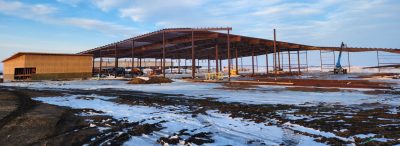Study and Planning
Emergency Response
Midwest Engineering's emergency response for structural issues is a valuable asset in a crisis. We have two of the most experienced structural collapse engineers in the region on our team. With 24/7 response available, we will show up with experience when you call. Snow collapses, vehicle hits, facade delamination, ice falls, explosions, and construction/engineering failures are all scenarios where Midwest Engineering has extensive experience. If you need help in a crisis, Midwest Engineering is your next call.

Building and Forensic Assessments
Midwest Engineering has extensive experience in building and forensic assessments. With clients ranging from owners to insurance companies, we can help figure out the cause and repair for building. Our experience ranges from hail/wind damage, soil movement damage, and building age deterioration. Our team can help determine cause and make recommendations and/or repair plans for your building.

Electrical System Analysis
A variety of studies provide valuable insights into a building's electrical and lighting systems. These studies furnish information essential for optimizing system adjustments to enhance occupant safety and comfort, especially for maintenance personnel. Furthermore, conducting a life cycle cost analysis ensures that building upgrades represent prudent investments.
Available Fault Current Study: An Available Fault Current Study (AFCS) is an assessment to determine the maximum level of electrical current that could flow through a given electrical system or circuit in the event of a fault (such as a short circuit or ground fault). The study involves calculating the potential fault current that could occur at various points within the electrical distribution network, typically at key locations like electrical panels, switchgear, transformers, or other critical equipment.
Selective Coordination Study: A Selective Coordination Study is a detailed analysis performed on an electrical distribution system to ensure that protective devices, such as circuit breakers and fuses, are coordinated in such a way that only the device nearest to the fault operates to isolate the faulted area. This coordination ensures that during a fault condition, only the smallest portion of the electrical system necessary to isolate the fault is affected, thereby minimizing downtime and disruptions to operations.
Arc Flash Hazard Analysis: An arc flash study, also known as an arc flash hazard analysis or arc flash risk assessment, is a comprehensive evaluation of a facility's electrical system to assess the potential hazards associated with arc flashes. An arc flash is a sudden release of energy caused by an electric arc between conductors, which can result in intense heat, molten metal, and pressure waves capable of causing severe injury, fire, and equipment damage.
Photometric Study: A photometric study for lighting in buildings and sites is a detailed analysis conducted to assess and optimize the distribution, intensity, and quality of light within indoor and outdoor spaces. It involves using photometric software and calculations to simulate and predict how light will be distributed from lighting fixtures throughout a given area.
Life Cycle Cost Analysis: A life cycle cost analysis (LCCA) is a systematic approach used to evaluate the total cost of ownership of a product, system, or facility over its entire life span. It considers not only the initial purchase or construction costs but also all costs incurred throughout its operational life, including maintenance, operation, energy consumption, and disposal or decommissioning costs. The goal of LCCA is to determine the most cost-effective option among competing alternatives by considering all relevant costs and benefits over the life cycle.

